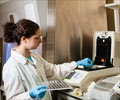A New Zealand study seems to show people at large still remain ignorant of the benefits genetic tests can bring to the health of individuals, families and communities. Such seems to be the case many doctors too, it says.
The report by the University of Otago-based Human Genome Research Project covers almost the entire gamut of genetic testing, embryos, newborns, children and communities, and examining new testing technologies and their implications.Project leader and Dean of the Law Faculty, Professor Mark Henaghan, says the lack of awareness and understanding is not confined to the general population but is also seen among the medical profession, because many doctors were trained before the concept of genetic testing ever saw the light of day.
"The information that is obtained as a result of genetic testing has the potential to be misused or misunderstood," he says.
"Throughout this report, we provide legal and ethical frameworks to ensure that the potential for misuse of genetic information is avoided as much as possible."
Professor Henaghan says that for any research or study in this area, the overarching principle should be Article 8 of the Universal Declaration on Bioethics and Human Rights 2005:
"In applying and advancing scientific knowledge, medical practice and associated technologies, human vulnerability should be taken into account. Individuals and groups of special vulnerability should be protected and the personal integrity of such individuals respected."
Advertisement
One of the report's key findings revolves around the way genetic tests could be incorporated into the current newborn testing programme to look for susceptibility to common diseases such as type 1 diabetes (T1D).
Advertisement
"The major concern about widespread uses of such screening is that parents may overreact if they find out their newborn has a susceptibility to diabetes and overprotect the child," he says.
"Our own research, carried out by Dr Kerruish for this report, showed that the group of parents who knew their newborn had an increased risk of T1D were in fact lowest on the anxiety scale in terms of how they related to their child."
The latest report recommends that particular attention must be given to minimising risks to newborns because of their particular vulnerability, such as by having clear policies on the retention and use of samples taken at birth through screening programmes.
Moral and ethical issues are raised in the section of the report dealing with genetic testing on children.
There is general consensus that it is both ethically and legally responsible for parents to test children for conditions for which, if detected at an early stage, the child can be provided with an environment best suited to coping with the disease.
The main controversy involves late onset diseases for which there is no effective cure – such as Huntington's disease. Child's rights advocates argue that because testing offers no immediate benefit to young children, the decision should be left to the children once they have sufficient understanding.
Professional guidelines vary on this, although geneticists appear more reluctant than physicians, parents and the general public to test minors, particularly where there are no medical benefits.
Professor Henaghan says it is vital that GPs and other health professionals know more about genetic testing and genetics services in New Zealand so they can better facilitate informed consent, know when to refer patients for testing, and be able to offer some degree of genetic counselling if required.
The report covers the issue of genetic testing of whole communities, a practice which provides significant scientific data for analysis of the cause of diseases. The 'warrior gene' controversy shows how the information from such research can be released in ways that have unexpected consequences for communities. The need for the establishment of a 'Maori Ethical Framework for Genetic Research' is highlighted in the report.
The potential impact of new and emerging genetic testing technologies, such as microarrays, allow many genetic tests to be done simultaneously on one genetic sample, meaning mutations that used to go undetected can be identified.
New technology called 'array comparative genomic hybridisation' (aCGH) is another major advance in the field of cytogenetics. It can detect differences in DNA at hundreds or thousands of points in the genome simultaneously and offers tremendous promise in prenatal detection of genetic alterations leading to serious genetic conditions.
These new technologies raise ethical issues such as the possibility of 'incidental' findings – unwanted findings or findings of unknown clinical significance – and the report recommends how such findings should be handled and relayed.
"Overall, the benefits of genetic testing for the health of individuals and populations outweigh the potential harms and we hope that the frameworks in this report will minimise the impact of those harms," says Professor Henaghan.
Work has already begun on the HGRP's next report, dealing with the effects of gene patents on health practice and research, genetic privacy, and pharmacogenetics – the tailor-making of medicines to match a person's genetic make-up.
Source-Medindia
GPL/S











